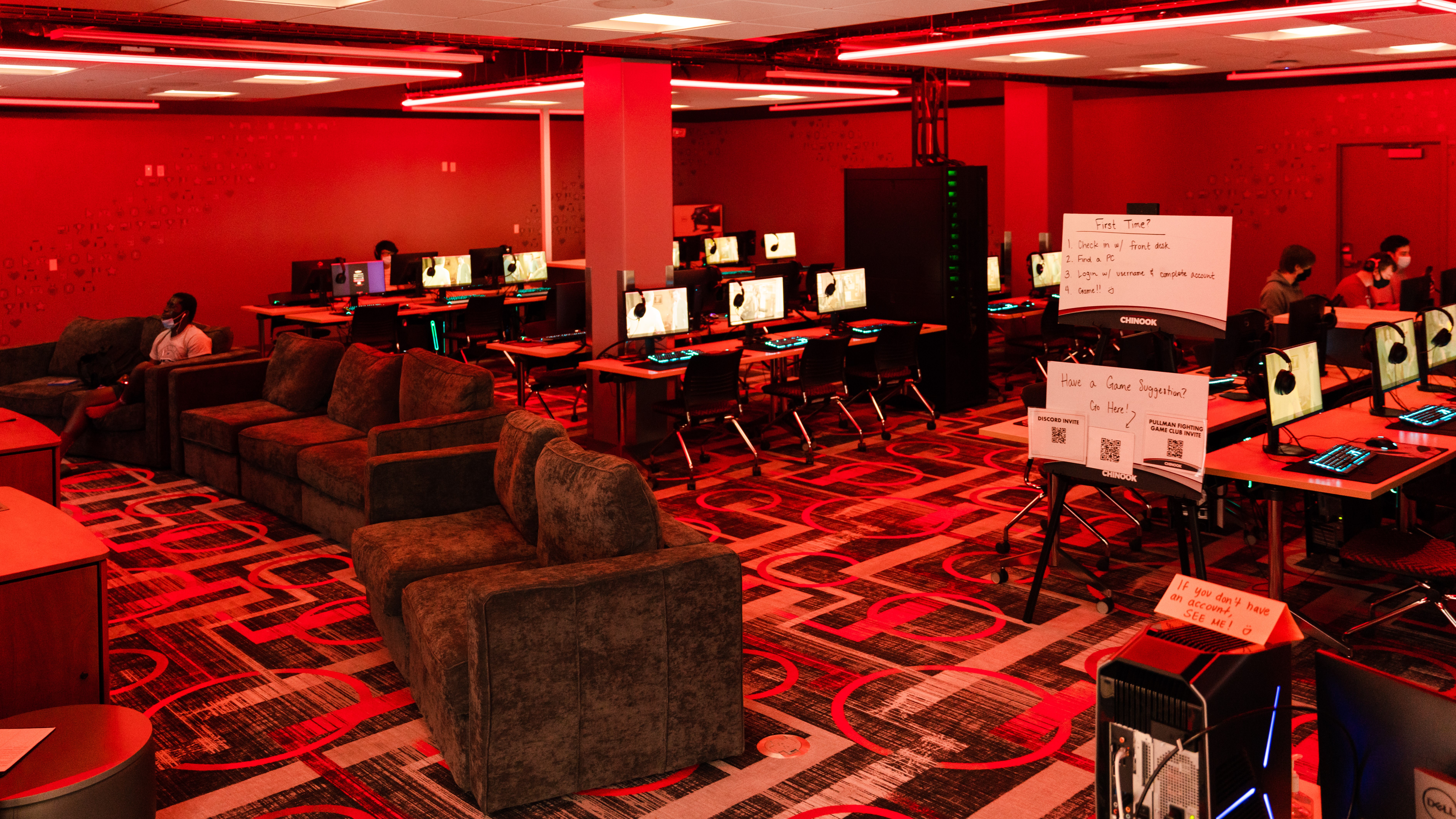Chinook Funding

The Chinook Student Center is an important part of student life on campus, serving more than 85% of students and seeing about 297,000 visits throughout the year.
The Chinook has its origins in a student-led initiative in 2014 to renovate the former Bookie building into a student center. With student input, WSU created a space that blends the amenities of a student union and a recreation center by offering study, fitness, community, and event spaces; food service; a popular eSports lounge; and quiet areas for meditation, prayer, and rest.
The current fee of $108 per semester was implemented when the Chinook opened in 2017. In 2024, students voted to increase the mandatory fee up to 5% per year with approval from the UREC Advisory Board and ASWSU Senate.
The Chinook is funded through a combination of sources:
Mandatory Fee
All undergraduate students enrolled in 7 or more credits pay a $108 per semester fee. The fee was established in 2017 via student referendum in order to build the Chinook Student Center.
Elective Memberships & Facility Rentals
Fees paid by graduate students, faculty/staff/alumni, and part-time students (as well as their spouses/partners) if they choose to purchase a Chinook membership. Graduate and part-time students (as well as their spouse/partners) pay the same amount for membership as full-time students; all other membership types pay a higher rate.
Groups who reserve Chinook 150 pay a facility rental fee to offset the costs associated with using the facility.
Freshens
Revenue from Freshens food sales.
This funding goes toward operating costs for the Chinook, which include:
- Salaries and benefits: Salaries and benefits for full-time staff who manage food service operations, as well as custodians and maintenance staff.
- Wages: Wages for student employees who work as facility managers, membership and weight room attendants, and Freshens food service workers.
- Goods and services: Building insurance, computers, signage, financial audit, copying and printing, equipment (from napping pods to weights), custodial supplies and equipment, building and equipment repair, recreation management software fee, phone and internet fees, food costs for Freshens.
- Utilities: Gas and electricity for the Chinook.
- Chinook debt payment: Annual payment toward the Chinook bond (the loan for building the Chinook).
It also includes the Chinook debt payment, which is the annual payment that goes toward the Chinook bond (i.e., the loan for building the Chinook). The debt payment is $1.92 million per year.
Chinook Funding Data
Mandatory Fee Collection History
| Year | Total Fee Collections | % Change |
| 2025-2026 | $2,652,413 | 1.79% |
| 2024-2025 | $2,605,807 | 1.57% |
| 2023-2024 | $2,619,601 | -5.58% |
| 2022-2023 | $2,774,474 | -9.62% |
| 2021-2022 | $3,069,817 | 0.66% |
| 2020-2021 | $3,049,818 | -10.18% |
| 2019-2020 | $3,395,631 | 0.65% |
| 2018-2019 | $3,373,717 | 4.43% |
| 2017-2018 | $3,230,523 |
2025-2026 Chinook Projected Revenues
| Source | Amount | Percentage |
| Mandatory Fee | $2,638,281 | 76.43% |
| Elective Memberships & Rentals | $46,017 | 1.33% |
| Freshens | $758,699 | 23.21% |
| Tech Fee-Esports Lounge | $7930 | 0.23% |
| Total | $3,452,036 | 100% |
2025-2026 Chinook Projected Funding Usage
| Expense | Amount | Percentage |
| Salaries & Benefits | $363,133 | 10.59% |
| Wages | $367,443 | 10.71% |
| Goods & Services | $626,257 | 18.26% |
| Utilities | $150,338 | 4.38% |
| Chinook Debt Payment | $1,923,175 | 56.06% |
| Total | $3,430,346 | 100% |